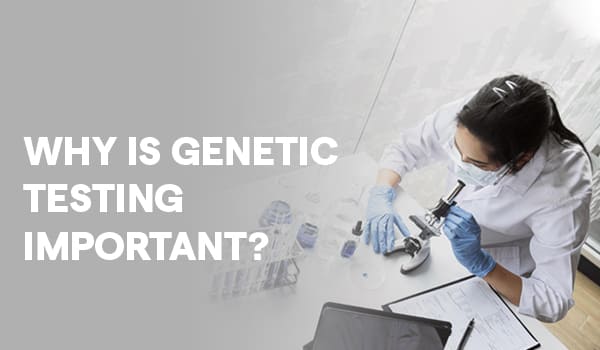Traditionally, medicine has been largely reactive, treating illnesses after they manifest. Genetic testing flips the script, allowing for a more proactive approach to healthcare. By identifying genetic mutations associated with various diseases, such as certain cancers, heart conditions, and neurological disorders, individuals can be flagged for increased risk factors. This early detection provides a vital window of opportunity. Early intervention, through lifestyle modifications, preventive measures, or targeted treatments, can significantly improve outcomes and potentially save lives.
For instance, a 2020 study published in the Journal of the American Medical Association (JAMA) found that genetic testing for Lynch syndrome, a hereditary form of colorectal cancer, could significantly reduce cancer risk through proactive colonoscopy and surgery. Similarly, a 2023 study in Nature Medicine suggests that genetic screening for specific mutations can identify individuals at high risk for developing Alzheimer's disease decades before symptoms appear, allowing for earlier intervention and potentially slowing disease progression.
The benefits of genetic testing extend far beyond disease prediction. Genetic insights can guide individuals toward personalized wellness plans. For example, genetic variations can influence how our bodies metabolize certain nutrients or respond to exercise. By understanding these variations, individuals can tailor their diet and exercise routines to optimize their health and well-being.
This is particularly relevant in the realm of pharmacogenomics, a field that studies how genes influence drug responses. By analyzing your DNA, doctors can determine how your body is likely to metabolize specific medications, allowing them to prescribe the most effective and well-tolerated options for you.
Types of Genetic Tests:
- Carrier Screening: This test identifies whether you carry a gene mutation for a genetic disorder that could be passed on to your generations. Even if you're healthy, it could be a carrier, making carrier screening crucial for couples planning a family.
- Prenatal Testing: Performed during pregnancy, these tests screen for genetic conditions in the developing fetus. Common methods include amniocentesis and chorionic villus sampling (CVS).
- Pharmacogenomics: This test analyzes how your genes might influence your response to certain medications. It helps doctors with medication dosages and types for optimal effectiveness and to minimize side effects.
- Diagnostic Testing: Confirms or rules out a suspected genetic disorder based on symptoms you might be experiencing. Examples include cystic fibrosis or Huntington's disease testing.
- Predictive Testing: Estimates your risk of developing a genetic disease in the future, even if you have no current symptoms.
Diagnostic vs. Predictive Testing:
The key difference lies in the timing of potential health issues. Diagnostic testing identifies existing conditions, while predictive testing assesses your future risk.
Why Consider Genetic Testing?
- Family History: If you have a family history of a particular genetic disorder, testing can determine if you carry the associated gene mutation.
- Health Concerns: If you have symptoms suggestive of a genetic condition, testing can provide a diagnosis and guide treatment.
- Planning a Family: Carrier screening helps couples understand their risk of passing on genetic disorders to their children.
- Ancestry: Genetic testing can provide insights into your ancestral background, but keep in mind it has limitations in pinpointing specific origins.
- Pharmacogenomics: Understanding your genetic makeup can optimize your medication plan and potentially improve treatment outcomes.
Genetic testing results can be life-changing, bringing a surge of emotions ranging from anxiety and fear to relief and empowerment.
Emotional Impact:
- Anxiety and Uncertainty: Positive results indicating an increased risk for a disease can trigger anxiety and fear about the future. The uncertainty surrounding the exact time of onset and potential severity can be overwhelming.
- Relief and Hope: Negative results, indicating a lower risk, can bring immense relief and a renewed sense of control. For those with a family history, a negative test can be liberating.
- Anger and Denial: Some people might react with anger or denial, especially if the results contradict expectations or raise difficult questions about family history.
- Identity and Self-Image: Genetic test results can challenge a person's sense of self, particularly if they learn about an increased risk for a disease associated with strong societal perceptions.
- Impact on Relationships: Test results can affect relationships with family members, partners, and offspring. Communication and support are crucial during this time.
Coping Strategies:
- Genetic Counseling: Discussing results with a genetic counselor can provide emotional support and clarify any uncertainties. They can help navigate the emotional rollercoaster and develop coping mechanisms.
- Support Groups: Connecting with others who have undergone similar testing can provide a sense of community and shared understanding.
- Mental Health Resources: Therapy or counseling can equip individuals with tools to manage difficult emotions and make informed decisions.
Today, advancements in technology have made genetic testing more accessible and affordable than ever before. A simple saliva or blood test can unlock a wealth of information about your genetic makeup.
However, it's crucial to remember that genetic testing is just one piece of the puzzle. Understanding the implications of your results requires expert guidance. Here at Sir Ganga Ram Hospital, our team of experienced genetic counselors can walk you through the testing process, interpret your results, and help you develop a personalized plan to maximize your health and well-being.
Genetic testing can be a powerful tool for taking control of your health and making informed decisions about your future.
Sir Ganga Ram Hospital is committed to providing comprehensive genetic testing services. The Genetics Hospital in Delhi was established in 1997 at Sir Ganga Ram Hospital. It has expanded over the years to become India's foremost genetic center. Every year, more than 7,000 people receive counseling, and around 20,000 tests are conducted. Patients and samples are referred from throughout India and its bordering nations.
Book an appointment with Sir Ganga Ram Hospital to find out more about genetic testing.
